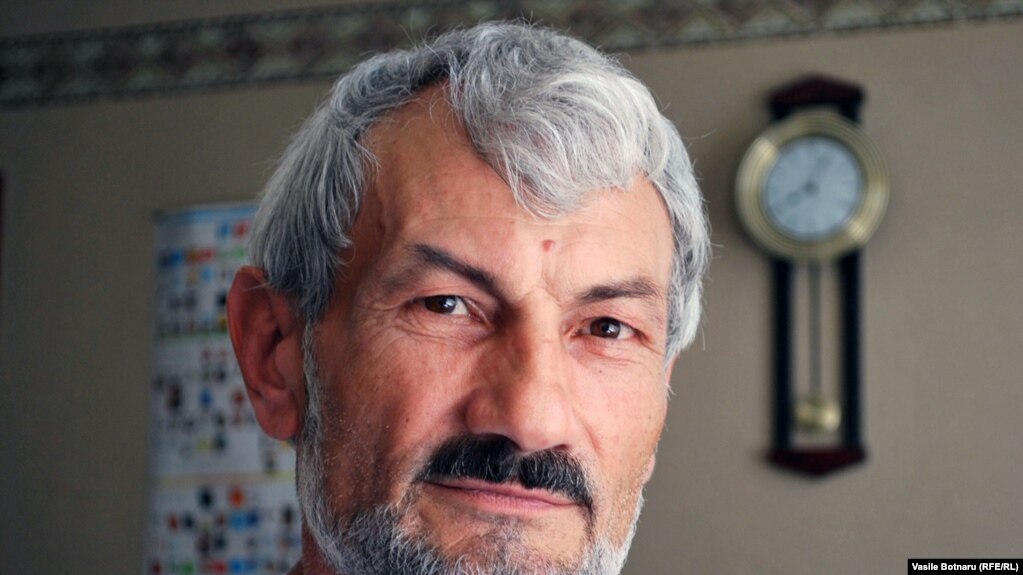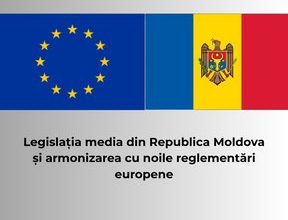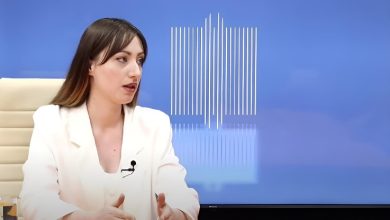The CES Decision: Reflections and Objections

Ion Bunduchi, Electronic Press Association Executive Director
In Moldova, six TV channels disappear overnight. Shall we drink champagne or wear black ribbons on our lapels?! Only God could answer this question unequivocally…
The decision taken on Friday night is neither absolutely good nor completely bad. I personally dislike the fact that it happened on Friday night. Two days after Friday, however, when things were less tumultuous, it seemed to leave more room for reflection and less for loud speculations we are hard-liners on, the speculations which seem rather sloppy. Yet the Internet has actually canceled the days of the week and erased the line between nighttime and daytime – people talk a mile a minute. It is true that what has happened recently was unprecedented.
A proverb says that history teaches us lessons and we fail to learn them. But history is not to blame for it.
In a small country like ours, some persons have always been willing to keep TV channels in their pockets. There have also been some persons willing to divide journalists into hostile camps, to make them do the work of party propaganda, to equip them with political and geopolitical spears, and to let them sing sweet songs to the voters’ ears, because journalists are better at it than politicians. For this sake, TV channels and journalists could always be found. Politicians have proven to be smarter and more devious than journalists. And journalism remains tainted by non-journalism, pseudo-journalism, or party journalism – aggressive, nasty, unscrupulous, and petty.
Since 1995, TV channels were supposed to obey the law instead of party decisions, the way they used to do in the past. In the past, really?! A bunch of profitable TV channels was hanging on every word of political patrons from here or elsewhere and kept the law on the shelf. Since 1995 onwards, TV channels had to provide a certain mandatory daily quota of local products. A part of them failed to provide it and still fails. Let’s make it clear: when you obtain a license, you assume a written obligation to comply with the law of the country and to honor your own commitments you are licensed for. It did not happen. What did happen (and still goes on) can generally be called parasitism on shiny, advertising-attractive, but foreign products which are often toxic – this practice is clearly anti-competitive and categorically unfair in relation to honest and law-abiding TV channels. And if it is so (yes, it actually is) what was supposed to happen?! Until 2022, such practice was also tolerated by the BCC, which has since become the BC, and by the governances that came to power.
As to me personally, I criticized the way the current composition of the BC was selected/appointed, and I still do. At the same time, I’m not blind not to notice what sets the current BC apart from most of its predecessors. However, what distinguishes it is precisely the habit of keeping the law on its desk. And the law tells it to act according to the legislation. That’s it! But the law does not provide everything for you effortlessly, and people know what they know – yes, it should also be considered. The law could be polished, and the people could know more if the obligation is not changed by complaining, whining, or finding excuses. Let’s note that since the BC finally started to obey the law, vehement voices about the standards, freedom, and editorial independence could be heard. What is it? Let us put it bluntly: this is using democratic standards against democracy. Editorial independence could only be protected if the editorial policy does not defy the law! If we witness the phenomenon when someone grabs democratic values in their hands could it still be called democracy?! What should this “someone” be named? And what is democracy supposed to do? What is the “red line” to be crossed until the situation could no longer be endured? We can presume that the very fate of democracy depends on the answers to these questions.
Let us also note that, as the BC stopped dividing TV channels into “ours” and “not ours,” it confused some people and shocked the others. However, the equation is simple: the BC still has to comply with the law. Yet the law does not allow it to divide them into “ours” and “yours.” And it still shocks some people. It’s normality that shocks them! I recall a situation a few years ago: a policeman refused to be bribed, and the media published headlines about it. Refusing to be bribed and respect for the law are/should be normal.
One can say we have everything – both structures and laws, which, for instance, do not allow excessive concentration of property in broadcasting or media holdings which serve politicians. We have always had holdings, as well as those many people who were paid not to admit them. But they admitted them because the holdings provided certain dividends, mainly party-related, and also economic ones. They are good for parties and poisonous for society. They fill our minds with the party’s wishes, even if it seems that we choose what to put in our heads from what the TV offers. It seems that it’s us who can choose, especially if we have heads of our own and if we haven’t replaced them with our TV sets. But judging from what I notice, it’s the TV who thinks for us more and more often. It’s convenient to have someone who tells you what’s good and what’s bad, who’s an enemy and who’s a friend inside and outside the fence. It’s convenient not to have to think – a holding company is the one who thinks for us. What about us? We stand by our freedom and our democracy. And beyond the TV, we no longer see any grimaces of freedom or grimaces of democracy.
The suspended TV channels would sooner or later have been suspended by the BC if they continued to ignore the legislation. They did ignore it, and not only the suspended ones, I have no doubts about it. The BC, however, following the legal provisions, was supposed to go through all the procedures stipulated by the law. It is more difficult for the BC if reasonable suspicions about an illegally formed holding company arise. This is where we need all the information which the BC does not have, but which it can request from the other structures. They could request it. I have great doubts whether they could receive it, judging by the level of cooperation among the structures and their common desire/intention to make order in one segment or another.
What should we think about what the Commission for Exceptional Situations did? Disappearance of a TV channel, if it really is a TV channel, is always a loss for free circulation of opinions and for unhindered information circuit in society. We could regret that those channels probably had some good programs which were in demand. It could not be excluded, but we should not forget about the spoonful of tar in a barrel of honey. We should also consider a very specific historical moment with its dangers and threats which are no longer abstract, because we feel them again and again.
TV channels hold us informational hostage. It’s a fact: we are hostages to information. Which information do I mean? If the information keeps me in the “glorious” past day by day, it doesn’t suit me. We should not forget the past, because it is ours and because we have our memories. But breaking away from it and living today is wiser if we look at those who have done so. Living today and thinking of returning to yesterday is sheer nonsense. It is just as silly to keep comparing values and traditions with those which are “more values and traditions” than ours. It’s wasting time and disastrous delusions.
I have witnessed the reaction of a TV channel whose license was suspended. Plenty of European slogans have sounded. It claims that it was not sanctioned for the way it covered the predatory war. It would be relevant to recall that, in November, APEL monitored the way several TV channels covered the topic of the war in the main newscasts during a week. Well, the channel in question did not cover anything on the topic for a week. From a strictly legal point of view, if there are no reports about the war, the BC has nothing to monitor. But what about the audience? We actually work for them, not for the BC. Are the channel’s favorite viewers not really interested in what is going on in the neighboring country?! Don’t they actually host any refugees from the neighboring country or help them, so that these concerns of theirs are also the channel’s concerns?! I don’t believe that the TV audience doesn’t care about such issues. Those viewers are people, the living people who feel compassion for those in need. They help them, so that they also get some assistance whenever they need it. It’s obviously human behavior. Ignoring such issues and problems can’t be called human behavior. It’s something else. It’s called manipulation by news blackout. And when you say you were sanctioned not for the way you covered a particular topic, but you “forget” to mention that you hush up this topic, it’s called omission, which is another manipulation technique. That’s the way everything is mixed in a single pot – both the slogans and the rights…
Suspending licenses may seem disproportionate. One may think: these TV channels have employees who need to be paid, they have premises and equipment to maintain and to take care of, and they probably have advertising, sponsorship, or partnership agreements to fulfill. Quite a bundle of problems. At the same time, which were the alternatives to the Commission’s decision? A freshly-formed holding company, in all its glory, with all the documents in order, perfectly legal, with all the known beneficial owners declared? Here, even the figureheads are known, because the country is like a market, and in the market, everything is known. And in the market, people work hard, and the structures which should prevent holding companies from emerging exist, but they typically shrug their shoulders.




